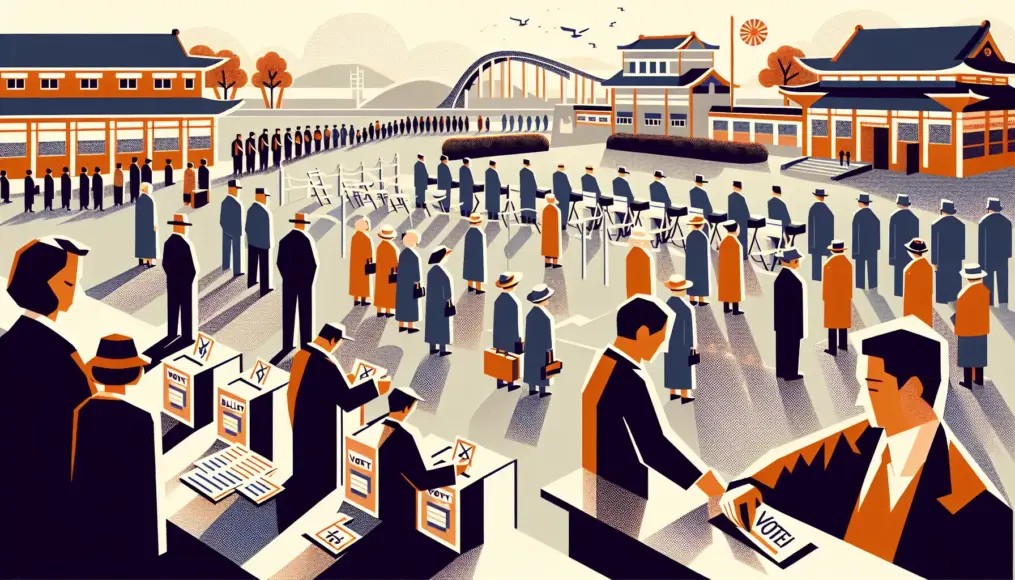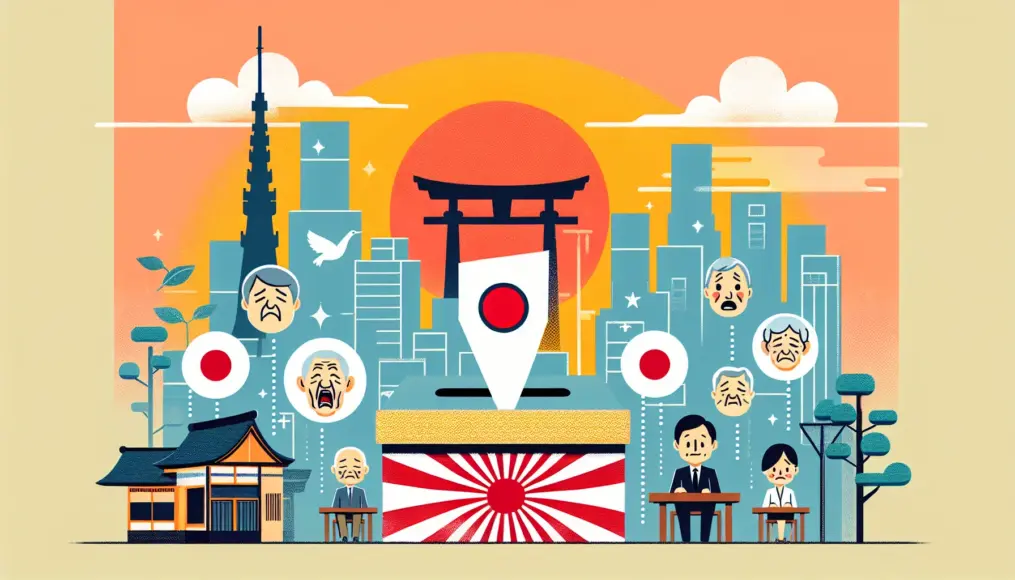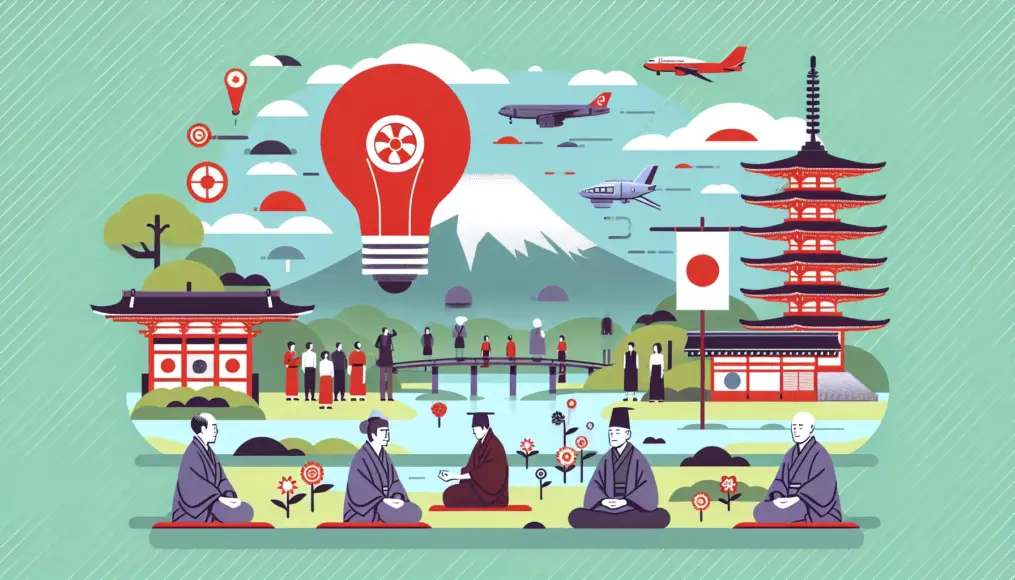The presidential election in Japan plays a crucial role in the country’s political landscape. Grasping the mechanics of this election is essential for exploring its influence and background. Historically, the presidential election symbolizes the evolution of Japan’s democracy and reflects the power dynamics between political parties. In this article, we will delve into the fundamental processes and historical context of the presidential election, as well as its implications for Japanese politics.
We will also share personal experiences from individuals involved in the election, offering insights into the behind-the-scenes aspects and the perspectives of the candidates. By reading this, you’ll gain a better understanding of how the presidential election is conducted and how it shapes Japan’s future.
- An overview of the basic processes and voting rules for the presidential election
- Notable examples of significant presidential elections from a historical perspective
- An exploration of the impact of the presidential election on Japanese politics
Understanding the Basics of Japan’s Leadership Election
The election of the party leader, known as the “sōsai-sen,” plays a crucial role in Japan’s political system. This election is part of the process for selecting the government leader, and it can significantly impact the lives and future of the citizens. Grasping the mechanics of the leadership election is the first step towards deepening your interest in politics.
In this section, we will delve into the fundamental processes, voting procedures, and rules surrounding the leadership election. By learning about how leaders are chosen and how this selection influences Japanese politics, you can gain a clearer understanding of the system.
Overview of the Election Process
The leadership election mainly occurs within political parties. Candidates are selected by party members, and thereafter, they receive votes from party members and general supporters. Typically, several candidates will run for the position, and the candidate who garners the most support is elected as the party leader. Various rules govern this process, which can differ from party to party.
This election process aims to select leaders through democratic means. Since the results can have a profound effect on the party’s policies and direction, the selection of candidates is done with great care.
- The leadership election is held within political parties, with candidates selected by party members.
- Candidates receive votes from party members and general supporters.
- The election process is governed by various rules that may differ among parties.
Voting Procedures and Rules
The voting process begins with the announcement of the candidates. Once candidates are determined, an election date is set, and voting takes place. Voting is typically conducted either by mail or in-person. Each supporter casts their vote for their chosen candidate, and after tallying the votes, the results are announced.
It’s important to note that voting rules can vary depending on the regulations of each political party. For example, some parties may prioritize votes from party members, while others may place significant weight on the opinions of general supporters. Therefore, understanding the voting flow and rules is crucial, as these can differ from one party to another.
- Voting occurs after the candidates are announced on the designated election day.
- Voting methods include mail-in ballots or in-person voting.
- Voting rules vary according to the regulations of each political party.
Understanding the Presidential Election Through Historical Context
The presidential election holds a significant place in Japan’s political landscape, heavily influenced by the political transformations that occurred after World War II. In particular, post-war Japan aimed to establish democracy, leading to major changes in its political system and electoral processes. These shifts are reflected in how presidential elections are conducted and how candidates are selected.
In this section, we will delve into the political changes following the war and highlight historically significant presidential elections. We will examine their context and outcomes, exploring how they have impacted Japanese politics. This analysis will provide a deeper understanding of the mechanisms behind presidential elections.
Political Transformations After the War
Post-war Japan underwent a profound transformation, establishing democracy after a period of occupation and reform. During this time, political systems were refined, and the transparency and fairness of elections were strengthened. Notably, the new constitution enacted in 1947 mandated democratic elections and guaranteed equal voting rights for all citizens. These reforms made presidential elections more equitable, allowing the voices of the people to be more effectively represented.
Moreover, in efforts to ensure political stability, the structure of presidential elections has evolved. The balance of power within political parties and the influence of party members in candidate selection have been strengthened, transforming presidential elections from mere electoral events into crucial occasions that shape the future of political parties.
- Post-war, Japan reformed its political system to establish democracy.
- The 1947 constitution guaranteed equal voting rights for citizens.
- Presidential elections have become an important process reflecting the balance of power within parties.
Notable Presidential Elections
Throughout history, certain presidential elections stand out as particularly significant. For instance, the 1989 presidential election coincided with the end of the Cold War, resulting in profound implications for Japan’s foreign policy. The election of a new leader prompted a reevaluation of Japan’s position in the international community.
Similarly, the 2001 presidential election marked a turning point in economic policy. This election saw the emergence of a candidate advocating for economic reform, leading to the implementation of key policies that would shape Japan’s economy in the years to come. Through these examples, we can see how presidential elections have influenced Japan’s political and economic landscape.
For those interested in this topic, I recommend checking out the article “Exploring Japan’s House of Representatives Election System: Its History and Impact.” This piece provides a detailed overview of post-war political trends and the historical context of the electoral system, further enriching your understanding of presidential elections.
- The 1989 presidential election had a significant impact against the backdrop of the Cold War’s end.
- The 2001 presidential election resulted in the selection of a candidate focused on economic reform.
- Each presidential election has had a profound effect on Japan’s political and economic landscape.
The Impact of Leadership Elections on Japanese Politics
Leadership elections in Japan have a profound influence on the country’s political landscape and policies, primarily because the chosen leader can alter national direction and policy. These changes can directly affect the lives of citizens. In this section, we’ll explore how leadership elections shape policy decisions and how the dynamics within political parties evolve as a result.
By examining the policies promoted by newly elected leaders and their actual impact on governance, we can gain a deeper understanding of the significance of these elections.
Influence on Policy Decisions
When a new leader is elected, they introduce various policies aimed at realizing their vision. For instance, their perspectives on economic and foreign policy are often directly reflected in governmental decisions. Thus, leadership elections serve as crucial turning points for policy formulation.
Moreover, once a leader is chosen, their support base and the political climate within the party can significantly affect the implementation of these policies. A victory in the election typically provides strong momentum for policy execution, contributing to the dynamism of Japanese politics.
- The new leader’s policies are directly linked to national direction
- Economic and foreign policies reflect the leader’s vision
- The support base can influence policy implementation
Dynamics Within Political Parties
Leadership elections also have a significant impact on the power dynamics within political parties. Through the election process, the alliances and rivalries among various factions and groups within the party become clearer. The emergence of a new leader can shift these dynamics, altering the influence different factions hold over policy decisions.
Additionally, leaders elected through these processes often prioritize the interests of their supporters. This focus can lead to divisions within the party, occasionally hindering the execution of policies. In essence, leadership elections are not just about selecting a new leader; they are pivotal events that can substantially shake up the internal power structure of political parties.
For those interested in this topic, we recommend checking out the article “Exploring the History and Future of the LDP.” It dives into the policy shifts of the Liberal Democratic Party and their implications, helping to further clarify the impact of leadership elections on Japanese politics.
- Leadership elections reveal the power relations among party factions
- New leaders may prioritize the interests of their supporters, leading to divisions
- Internal party dynamics can influence the implementation of policies
Insights from Those Involved in the Presidential Election
The presidential election is an event that brings together the dedication and passion of many individuals. The process involves a diverse group of people, including candidates and campaign staff. By understanding their perspectives, we can gain insight into how the election unfolds and the emotions that drive it. This chapter focuses on the viewpoints of candidates and the essential roles played by campaign staff, exploring their significance through real-life experiences.
Through these narratives, we will not only learn how the election process operates but also connect with the thoughts and challenges faced by those working behind the scenes.
The Candidate’s Perspective
Running as a candidate in the presidential election is an incredibly intense experience. Many candidates pour their hearts into articulating their beliefs and policies, striving to gain support. During the campaign, they travel across the country, engaging with voters through speeches and conversations. While these activities can be demanding, they also provide invaluable opportunities to hear directly from supporters.
Additionally, the election campaign serves as a platform for candidates not only to share their ideas but also to foster personal growth through competition with other candidates. By encountering a variety of opinions and responses, they can reflect on their own policies and positions.
- Candidates present their beliefs when running for office
- They visit various locations to connect with voters
- They gain opportunities for personal growth through competition
The Role of Campaign Staff
Campaign staff play a crucial role in supporting the candidate’s election efforts. They are a team of specialists who devise campaign strategies and manage public relations. With their diverse skill sets, staff members help ensure the smooth progression of the campaign and effectively communicate the candidate’s message.
Moreover, campaign staff work tirelessly around the candidate, coordinating and providing support amidst a hectic schedule. It’s thanks to their hard work that candidates can focus on their campaign activities with peace of mind. The contributions of these individuals, who support such a significant project, should not be overlooked.
- Campaign staff play a vital role in supporting the candidate’s activities
- Their skills contribute to the success of the campaign
- They strive to create an environment where candidates can focus
Conclusion
The presidential election plays a crucial role in Japanese politics, and understanding its framework is essential for anyone looking to deepen their interest in political matters. In this article, we explored the fundamental processes, historical context, and the impact of the presidential election on Japanese governance. We also shed light on the thoughts and efforts of the candidates and election staff, providing a glimpse behind the scenes of the electoral process.
It becomes clear that the mechanics of the presidential election extend beyond merely selecting a leader; they significantly influence the power dynamics within political parties and policy-making. This offers a valuable opportunity to reflect on how elections relate to the lives and futures of the citizens.
- The presidential election is a vital process in Japanese politics.
- The election framework is closely tied to its historical context.
- Understanding the perspectives of candidates and staff enhances comprehension of the electoral process.
Continuing to deepen our understanding of Japanese politics is essential moving forward. If you have any thoughts or opinions about this article, feel free to share them in the comments!



Comment